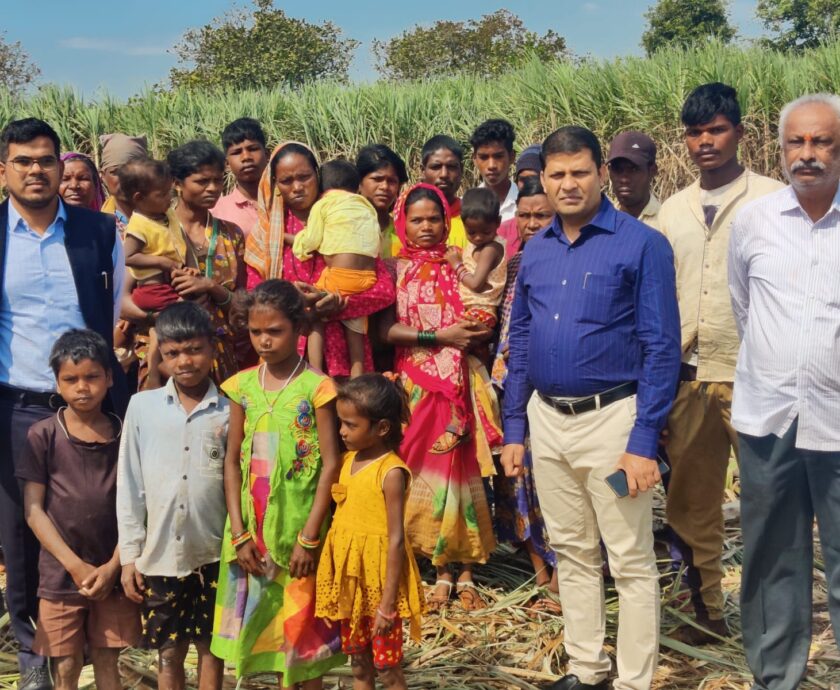Introduction:
Water is life driving force and one of the most precious resources on the planet. Its availability and accessibility has driven civilization. Water scarcity is the lack of sufficient available water resources to meet demands of water by people within a region. Water scarcity can both be natural and human origin. Effects of water scarcity can be numerous. Lack of drinking water leads to dehydration. Shortage of water for agricultural purpose and livestock lead to starvation. People cannot wash their clothes or clean their homes. It also generates sanitation problems. It further leads to local conflicts among people. In fact, water scarcity has become an important global economic issue. It also affects river and other water bodies which in turn lead to loss of biodiversity.

Water management becomes very important for solving water scarcity issue. People should know or should be informed about sustainable water management. They should also be made aware that every drop of water is important and wastage should be avoided. It is necessary to reform all forms of water consumptions whether it is at individual or household or organization levels.
Background:
Jawhar is a beautiful block/Taluka in north-west of district Palghar, Maharashtra. It is famous for its waterfalls and Warli paintings. Jawhar receives significant amount of rainfall (average 2000-3000 mm per year). Agriculture is in full swing for six months-June to Nov. However, as the summers approach, Jawhar faces water scarcity problems. Region is occupied by hard rock formations having low sub surface storage potentials and steep gradient along hill ranges creating water scarcity situation during summer. There is an acute shortage of water making agriculture unviable hence people are forced to do only mono-cropping. There are lack of industries and no other occupation so people are forced to migrate to nearby cities in search of job. They mostly find work as unskilled labours.
Dongarpada is one of the small hamlets in Pathardi Gram Panchayat which is only 14 Km away from Jawhar and 120 Km from Mumbai, capital of Maharashtra. It has 166 households and 872 population. People face water scarcity issue during summer especially in the month of April and May. Mostly women fetch water and travel a long distance which becomes 3 to 5 Km once water sources dry up in their village. Nearby village where these women go is Ramkhind which is 6 Km. When situation worsen, villagers of Ramkhind do not allow them to fetch water for their water resources. They try to get from any water body so there is no surety that they will get clean potable water.
Intervention by AROEHAN:
AROEHAN started working in 6 hamlets of Pathardi Gram Pachayat under Integrated Village Development Project (IVDP) since June 2019. After initial survey, team found that water scarcity is one of the important issue at Dongarpada which should be focused on. It soon formed Water Management Committee (WMC) in July 2019. There are 7 members in WMC. Though committee was formed but people were initially not turning up during meetings. They had been asked to conduct meetings by own but members were not conducting regular meetings by own. AROEHAN team motivated them and conducted various meetings. Members were shared about importance of WMC and their roles and responsibilities. They were also suggested to conduct at least one meeting per month. Further, team and WMC members conducted survey to find out availability of water sources at Dongarpada. It was found that there are 1 check dam and 4 wells. Team again faced challenge when MGNREGA work started. Members again became irregular in the meetings. Team decided to conduct meeting at place where MGNREGA work was being done. It let members work and also attend the meetings.
In Feb 2020, meeting was conducted to discuss water scarcity issue which people have been facing since ages. Members checked water level in the water resources (bodies). They realized that water level had reduced and it would create water scarcity issues during summer. Members had discussion and decided to propose and raise this issue in Gram Sabha. In Gram Sabha, there was discussion about water scarcity issue and need of sustainable management of water. Rules for water usage were laid down which are as following:
1) Every household should be fetching 3 pots (Handa) of water from one well in morning and 3 in evening.
2) Water should be fetched on weekly basis from each well. If water is fetched from one well in one week, then next week it should be next well.
3) Drinking water should be from 3 wells. 1 will be used at one time and other two will be given time for water recharge so will not be used. For household purpose water from remaining one well and check dam will be used.
4) Monitoring will be done by members of WMC. But it is moral responsibility of all villagers to use water cautiously to avoid water shortage issue.
These rules were put near each water resources.
Team along with WMC members has been monitoring water usage in Dongarpada. It has been found that people are serious about this issue and following rules laid out. Water levels in wells were also checked and it was found that water levels are more as compared to previous years. These activities will surely help in reducing water shortage during this summer. It has been possible only because WMC members have understood and fulfilled their roles and responsibilities really well.





